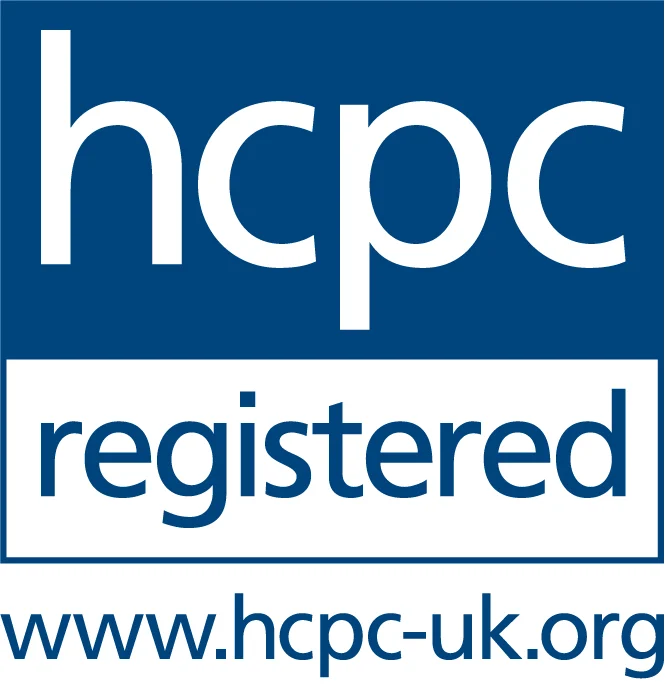Why isn't 'Asperger's Syndrome' a diagnosis anymore? What do we call 'Aspergers' Syndrome' now? What if I had a diagnosis of Asperger's Syndrome before 2013?
Read PostWhat is Adult ADHD (Attention Deficit Hyperactivity Disorder)?
Although Attention Deficit Hyperactivity Disorder (ADHD) is commonly known as a childhood condition, it’s essential to recognise that ADHD is a developmental difficulty that can persist into adolescence and into adulthood.
ADHD in adults can look very different from how it presents in children, and understanding its impact is crucial to managing the condition effectively.
How common is Adult ADHD?
In the UK, it’s estimated that around 2% to 5% of adults are affected by ADHD, with men being diagnosed more frequently than women. Adult ADHD often goes unrecognised or misdiagnosed, particularly in women, as their symptoms tend to be more subtle and women may present with more inattentiveness than hyperactivity. Many women are sometimes misdiagnosed with anxiety, depression, or borderline personality disorder.
Approximately 50% to 86% of children diagnosed with ADHD continue to have the disorder or significant symptoms and impairment into adulthood. Some research suggests that around 60% of children with ADHD retain symptoms in adulthood, with more than 40% meeting the full criteria for ADHD.
Many adults with ADHD were never diagnosed as children, and they may struggle with symptoms in ways that affect their daily life, relationships, and careers.
What causes Adult ADHD?
The causes of Adult ADHD are the same as the causes of Childhood ADHD because the difficulties originate in childhood. The exact cause of ADHD is still not fully understood, but research suggests that a combination of genetic, neurological, and environmental factors contributes to the development of the condition.
- Genetic factors: ADHD often runs in families, indicating a strong genetic component.
- Neurological factors: Brain differences are commonly observed in individuals with ADHD, studies show that people with ADHD may have lower levels of the various neurotransmitters which are responsible for regulating these brain functions.
- Environmental factors: Aspects such as pre-natal exposure to tobacco, alcohol, or drugs during pregnancy can increase the likelihood of developing ADHD. Additionally, stressful early childhood experiences such as abuse or neglect may also increase risk.
Click here for our blog on Childhood ADHD for more detailed information.
What are the symptoms of Adult ADHD?
Many adults with ADHD were never diagnosed as children, and as adults struggle with symptoms in ways that affect their daily life, relationships, and careers.
Adult ADHD manifests in many ways, often leading to difficulties in maintaining focus, managing time, and controlling impulses. The symptoms generally fall into two categories: Inattentiveness and Hyperactivity/Impulsivity.
Inattentiveness:
- Having a short attention span or being easily distracted.
- Making careless mistakes at work or in daily tasks.
- Frequently losing things or forgetting important details (e.g., appointments, deadlines).
- Difficulty organising tasks or managing time effectively.
- Procrastination and an inability to follow through on tasks.
Hyperactivity and Impulsivity:
- Difficulty staying still or sitting quietly in meetings, conversations, or while doing tasks.
- Restlessness, often described as feeling “on edge”.
- Interrupting others during conversations or being socially inappropriate.
- Rushing through tasks without considering the consequences.
- Impulsive decision-making and a tendency to act without thinking things through.
- In addition to these symptoms, adults with ADHD may experience challenges with emotional regulation, making them prone to frustration, mood swings, and anxiety.
How is Adult ADHD diagnosed?
Diagnosing Adult ADHD can be challenging, as many of the symptoms overlap with other mental health or behavioural conditions, such as anxiety, depression, or sleep disorders.
Here at Equilibrium Practice we offer a 3-Step Online Assessment Process. This process is NHS-compliant.
Click here for more information on our assessments, or read on below.
Child (5-17) or Adult (18-60) ADHD 3-Step Online Assessment Process
Step 1: Free No-Obligation 15-Minute ADHD Triage Consultation
Schedule a free, no-obligation 15-minute triage consultation with a Consultant Clinical Psychologist. During this call you will be asked some structured screening questions about your symptoms (adult assessment), or your child's symptoms (child assessment) to determine if a full ADHD assessment is clinically appropriate (ADHD Symptom Test, ASRS v1).
If the assessment is not clinically appropriate, you may be signposted to other helpful services.
If the assessment is clinically appropriate, we will arrange a full private ADHD assessment appointment with you (adult assessment), or you (parents/carers/guardians) and your child (child assessment), within 7 days, or at a time that suits you.
Step 2: Full Private ADHD Assessment Appointment
You (adult assessment), or you and your child (child assessment), will meet with a Consultant Clinical Psychologist online via a secure therapy platform using a dedicated video link at the time of your appointment.
During this appointment, you (adult assessment), or you and your child (child assessment) will be asked multiple questions using NICE and NHS-compliant ADHD assessment tools (Conners 4, DIVA-5 Child/Adult, QbCheck). For child assessment, your child's teacher will also be asked to complete a questionnaire.
Step 3: NHS-Compliant Diagnosis and Treatment Recommendations Appointment
You (adult assessment), or you and your child (child assessment), will meet again with the same Consultant Clinical Psychologist online, using the same dedicated video link at the time of your appointment.
If you are not diagnosed with ADHD, you will be provided with a short report and NHS-compliant letter with the outcome of your assessment. You may be signposted to other helpful services.
If you are diagnosed with ADHD, you will be provided with an NHS-compliant report and diagnostic letter with the outcome of your assessment. Psychological treatment recommendations and signposting options will be discussed with you to provide ongoing support if required.
Fees
- Free No-Obligation 15-Minute ADHD Triage Consultation - FREE
- Adult ADHD Assessment - £795
- Child ADHD Assessment - £1,295
- Psychological Treatment Appointment - £130
Schedule a consultation with Equilibrium Practice.
Related Conditions:
Adult ADHD is often seen alongside other mental health or behavioural disorders. This is called comorbidity and is common among individuals with ADHD. Some of the most frequently co-occurring conditions include:
- Anxiety Disorders: It’s estimated that around 30-50% of adults with ADHD also experience anxiety disorders.
- Depression: Many individuals with ADHD struggle with feelings of inadequacy and frustration, which can lead to depression.
- Substance Misuse: Some adults with ADHD may misuse substances, often as a way to self-medicate symptoms such as restlessness, impulsivity, or sleep disturbances.
- Sleep Disorders: Adults with ADHD often experience disrupted sleep, which can worsen other symptoms.
How is Adult ADHD treated?
ADHD treatment for adults is multifaceted, aiming to alleviate symptoms and improve daily functioning. Treatment may include medication, therapy, lifestyle changes, and coping strategies.
Medication:
- Stimulant Medications: These are the most commonly prescribed medications for ADHD and help improve focus, reduce impulsivity, and manage hyperactivity.
- Non-Stimulant Medications: For individuals who don’t respond well to stimulants or experience side effects, non-stimulant medications may be prescribed.
Psychological Therapy:
- Cognitive Behavioural Therapy (CBT): CBT helps individuals with ADHD recognise and change negative patterns of thinking and behaviour. It also teaches coping strategies for managing time, organisation, and emotional regulation.
Lifestyle Changes:
- Sleeping Habits: Ensuring that you regularly get enough sleep is crucial for managing ADHD symptoms.
- Regular Exercise: Physical activity helps reduce restlessness and improve focus by increasing dopamine and norepinephrine levels.
- Diet and Nutrition: Maintaining a balanced diet can help regulate mood and energy levels. Some adults find that avoiding caffeine or certain foods can help minimise symptoms.
Support Systems:
- Workplace /Educational Support: It can help to tell your employer or academic institution that you have a diagnosis of adult ADHD as they can. make reasonable adjustments to the workplace to accommodate your difficulties.
- Social and Family Support: Discussing your adult ADHD diagnosis with your family can help make sense of your experiences and interactions with them.
ADHD in adults can be challenging, but with the right support and management strategies, adults with ADHD can thrive in their personal and professional lives. If you suspect you may have Adult ADHD or are struggling with symptoms that impact your daily life, contact us to arrange a consultation to discuss your requirements further.
SOURCES:
National Institute of Mental Health: “Attention-Deficit/Hyperactivity Disorder.”
CDC: “Attention-Deficit/Hyperactivity Disorder.”
American Journal of Psychiatry: “Variable Patterns of Remission From ADHD in the Multimodal Treatment Study of ADHD.”
The Journal of Child Psychology and Psychiatry: “Defining ADHD symptom persistence in adulthood: optimizing sensitivity and specificity.”
Pediatrics: “Mortality, ADHD, and psychosocial adversity in adults with childhood ADHD: a prospective study.”
UC San Diego Health: “Only 1 in 10 Kids with ADHD Will Outgrow It.”
Neuroscience & Biobehavioral Reviews: “Brain alterations in children/adolescents with ADHD revisited: A neuroimaging meta-analysis of 96 structural and functional studies.”
PLOS One: “The brain anatomy of attention-deficit/hyperactivity disorder in young adults – a magnetic resonance imaging study.”
American Academy of Family Physicians: “Managing Adult ADHD.”
Chadd.org: “ADHD Changes In Adulthood.”
Written by Harriet Perring (Assistant Psychologist), under the clinical supervision of Dr Lorna Stewart (Clinical Director, Consultant Clinical Psychologist).
Disclaimer: All blog content is for information only and is not mental health treatment.
Other Posts
What is childhood ADHD? How common is childhood ADHD? What causes childhood ADHD? What are the symptoms of childhood ADHD? How is childhood ADHD diagnosed? Related conditions. How is ADHD treated?
Read PostWhat is Autism Spectrum Disorder (ASD)? What is a neurodiversity? How do I know if I need an assessment? What's involved in an assessment? How can a diagnosis help?
Read PostWhat is Cognitive Behaviour Therapy (CBT)? How does CBT work? How do I know if CBT is right for me? What happens during CBT?
Read PostWhat is Acceptance and Commitment Therapy (ACT)? How are CBT and ACT different from each other? What happens in ACT?
Read PostWhat is STAIR Therapy? What are the goals of STAIR?
Read PostWhat is anxiety? What are the symptoms of anxiety? What are the different types of anxiety disorders?
Read PostWhat is Dental Anxiety, or Dentophobia? What are the symptoms? What are the causes? What is the overlap between Dentophobia and Blood-Injury-Injection Phobia? What is the treatment?
Read Post




